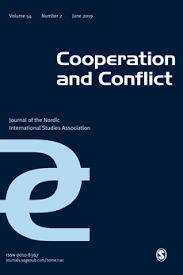Resource information
Recent years have witnessed a resurgence of interest in indigenous, traditional and customary approaches to peace-making in the context of civil wars. Supporters claim that indigenous approaches to peacemaking are participatory and relationship-focused, and that peaceful outcomes have a higher chance of community adherence than template-style international peace interventions effected through the `liberal peace'. Using historical and contemporary examples, this article assesses the feasibility of a complementary relationship between customary and Western forms of peace-making. It posits that internationally supported peace operations (the liberal peace) are promoting a standardization of peace interventions in civil war situations that often fails to deliver a widely enjoyed peace. In some cases, traditional and indigenous approaches to peace-making and reconciliation can offer a corrective to the failings of the Western peace-making model. Yet, any temptation to romanticize `indigenous' and `traditional' peace-making must be resisted: instead, the concepts require careful conceptualization and interrogation. The article concludes that the structural power of Western peace-making methods limits the space for alternative approaches to peace-making and that rather than a co-existence of both forms of peace-making we are more likely to see the co-option of indigenous and traditional approaches by Western approaches.


